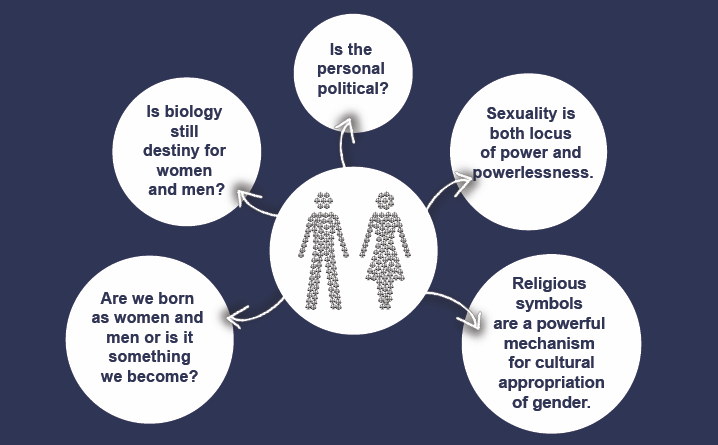
Spend the spring at the Center for Interdisciplinary Studies
The five-week Program begins in June. Classes are held twice a week, from 5 to 8 p.m.
Enrollment fee is 1,000 KM per participant.
Upon completion of the Program, the participants will receive a Certificate with 3 ECTS issued by the University of Sarajevo.
To apply for the Program, fill out the application form and send a CV in English to cis@cis.unsa.ba.
Program coordinator: Zilka Spahić-Šiljak, PhD
GENDER THROUGH CROSS-CULTURAL LENSES 2019 for web June
Course Description
How human beings are raised, socialized, and educated determines how they live their lives to a large extent. Gender matters! It is the fundamental distinction of the social life in all cultures but its construction varies across the globe. What is assumed to be “natural” for women and men or what is believed to be inborn male and female qualities are in fact cultural constructs that change through time.
The course offers a cross-cultural exploration into the commonality and diversity of gender roles and identities that can help us understand power dynamics of the globalized world, as well as how gender norms and institutionalized patriarchy underpin social and political inequalities. The intersection of gender, class and race particularly reveals how interlocking systems of power influence marginalized groups of people. Using gender as analytical category can help us understand how gender inequalities are created and what the mechanisms to maintain and justify them by social, political and cultural norms are.
Main Themes
WEEK 1: Gender, biology and evolution
Exploring the conceptual and sociological differences of sex and gender, as well as historical development of gender equality — Is biology still destiny for women and men?
WEEK 2: Public and Private Worlds
Analyzing the social contract theory and its impact on complex and layered structure of women’s lives across cultures; women as social actors and agents within one culture and in their relationship to men – Is the personal political?
Week 3: Cultural construction of gender and personhood
Learning how we assign meanings and value to the category of women and men in the world of symbols and how we produce and reproduce stereotyped gender roles and expectations — Are we born as women and men or is it something we become?
Week 4: Culture, sexuality and body
Understanding that sexuality as a social and economic product across time and cultures is fluid and shifting and analyzing how sexual forms and practices, although locally diverse, are increasingly shaped by global products such as mass media — Sexuality is both the locus of power and powerlessness.
Week 5: Gender, spirituality and rituals
Comprehending how the religious experience of women is different from that of men; whether and how women become ritual specialists; what religious functions they perform and what implications these ritual activities have for women’s prestige, status, and empowerment — Religious symbols are a powerful mechanism for cultural appropriation of gender.
If you are ready to challenge your assumptions, beliefs and attitudes, join us on this journey.